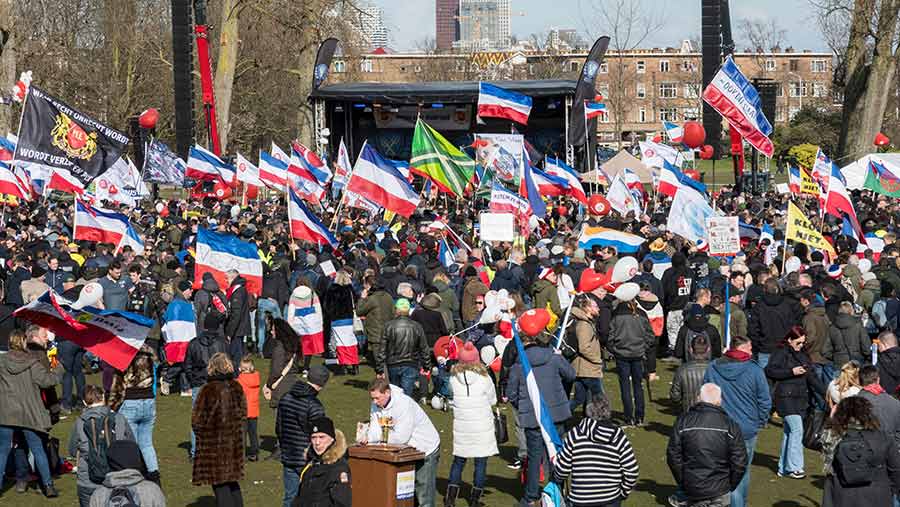EU approves Dutch plan to forcibly close farms
 © PMVFoto/Alamy Stock
© PMVFoto/Alamy Stock The European Union has approved controversial plans for the Dutch government to forcibly buy out livestock farms as part of plans to cut nitrogen emissions.
Two schemes with a total budget of €1.47bn (£1.29bn) will be used to compensate farmers for the voluntary closure of their holdings. About 3,000 small and medium-sized livestock farms near environmentally sensitive areas will be eligible for the payments.
The schemes, called LBV and LBV Plus, can run until 27 February 2028. Farmers will be offered up to 120% of the market value of their company if they agree to close.
See also: Dutch pro-farming party gains big win in provincial elections
Farmers who decide to close their holdings must guarantee they will not start up livestock farming operations elsewhere in the Netherlands or within the EU.
The Dutch coalition government says it must curb its nitrogen oxide and ammonia emissions by 50% by 2030 to comply with EU greenhouse gas emissions targets. It considers livestock farms as “peak polluters” and says their closure is necessary to meet the regulations.
But the plans have triggered a huge backlash from farmers and caused a wave of farmer-led protests across the country.
The Dutch public and prominent politicians and celebrities have also come out in strong support of farmers.
Farmers’ protest party BoerBurgerBeweging (Farmer-Citizen Movement), led by former agriculture journalist Caroline van der Plas, stunned Dutch politics in March by taking 17 seats in the provincial senate elections, making it by far the largest party.
Dutch political commentator Eva Vlaardingerbroek condemned the plans on her Twitter account, accusing the EU and Dutch government of “putting a knife to the farmers’ throats”.
